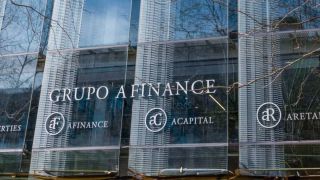
The Bank of Spain puts the focus on the value of the mortgaged flats
The supervisor wants to prevent banks from concealing the devaluation of real estate. The agency has strengthened the control of remote appraisals of housing<br />
The supervisor wants to prevent banks from concealing the devaluation of real estate
One of the problems that forced the European bailout of Spanish banks was that investors mistrusted official data on the size of real estate indigestion suffered by the entities after the bubble burst. To remedy this, the Government and the Bank of Spain adopted different measures to force the entities to recognize and to appear the authentic load of bricks that they suffered. And despite the fact that the worst has been left behind, the supervisory agency has gone ahead with this strategy: it has now focused on the real estate on which the banks grant the mortgages and which constitute the guarantee of these loans in case of default of the client .
When these properties are devalued, entities are obliged to reserve generic provisions to protect themselves in case the loan falls into default, as they may eventually have to stay with the floor and the floor may have lost value, which would cause a lost. The problem is that these provisions penalize the income statement, so that banks may have a perverse incentive not to recognize the devaluation of real estate.
The regulations allow the appraisal of these floors through an automated valuation model (AVM), that is to say, by means of statistical methods without the need to visit a specific property by an appraiser.
These automated methods calculate the value according to the historical evolution of market prices and the analysis of current comparable properties with characteristics similar to the one being reviewed, such as location, surface, seniority or equipment.
Delinquencies and foreclosures are on the decline due to the economic recovery, which in this segment is likely to lower valuations. But the real estate market is on the rise, with the consequent increase in the mortgages granted, which will have more floors with credits up-to-date payments to analyze.
According to the National Statistics Institute, banks granted 281,328 mortgages in 2016, up 14%, their third consecutive annual increase after seven years of declines. In the year, there were 403,743 housing sales, 13.9% more and the highest figure since 2011, according to the College of Registrars. Floor prices rose 5.7%, up 13.3% from the 2014 low but remain 25% lower than the 2007 high. However, as the organization has warned, Rise in prices has a "different behavior depending on the geographical areas, and seems to show a certain degree of exhaustion". Hence the importance of banks' balance sheets reflecting the value of real estate.
Source: el Periódico
- Featured news
-
Consigue tu hipoteca ideal con ayuda experta y mejores condicionesAugust 11th 2025
-
 Incorporamos a Carlos Martín como nuevo Director de nuestra oficina de Barcelona en aFinanceSeptember 19th 2024
Incorporamos a Carlos Martín como nuevo Director de nuestra oficina de Barcelona en aFinanceSeptember 19th 2024 -
 Las finanzas bajo el foco con nuestro Director NacionalSeptember 12th 2024
Las finanzas bajo el foco con nuestro Director NacionalSeptember 12th 2024 -
 En aFinance participamos en el Evento ‘Comunicación Eficaz’ en Roca Barcelona GalleryMay 25th 2024
En aFinance participamos en el Evento ‘Comunicación Eficaz’ en Roca Barcelona GalleryMay 25th 2024 -
 En aFinance, nos complace anunciar la incorporación de Patricia Marqués como Coach EjecutivaMay 23rd 2024
En aFinance, nos complace anunciar la incorporación de Patricia Marqués como Coach EjecutivaMay 23rd 2024 -
 En aFinance hemos superado los 1.150 millones de euros en valor de transacciones durante 2023May 3rd 2024
En aFinance hemos superado los 1.150 millones de euros en valor de transacciones durante 2023May 3rd 2024






